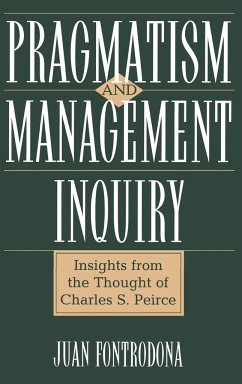Good managers do not simply get things done-they do the right things. They are ethical. Through an examination of the work of Charles S. Peirce, the American philosopher who coined the term pragmatism in 1872, Fontrodona emerges with important clarifications, as well as an innovative view of human action and the practice of management. Pragmatism, often misunderstood as a triumph of pure effectiveness, is actually a process by which people, through action, reveal and develop themselves using virtue and value. In Part I, Fontrodona considers human action not only from the viewpoint of its effectiveness, but also from its purposefulness. In Part II, the study turns to Peirce's thought about the nature of science, which shows us that while management is eminently practical, it is also based on a scientific approach. Part III presents three principles for human action drawn from the three normative sciences: creativity based on logic; community based on ethics; and character based on aesthetics. Finally, Fontrodona questions the presence of these principles in the commonly accepted, current models of management.
Hinweis: Dieser Artikel kann nur an eine deutsche Lieferadresse ausgeliefert werden.
Hinweis: Dieser Artikel kann nur an eine deutsche Lieferadresse ausgeliefert werden.








